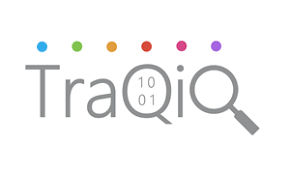Blockchain technology has the potential to improve basic services in the Finance industry. It is based on a decentralized, digitalized, and distributed ledger model at its core. This is stable and safer than the proprietary, centralized models currently used in the trade ecosystem.
What is the concept of decentralization in Blockchain?
The transition of control and decision-making from a centralized entity (individual, organization, or group thereof) to a distributed network is referred to as decentralization in Blockchain. Decentralized networks aim to minimize the amount of trust that participants must put in one another and limit their ability to assert power or influence over one another in ways that are detrimental to the network.
Blockchain technology provides a way for untrusted parties to come to agree on the status of a database, without using a middleman. By providing a ledger that nobody administers, Blockchain could provide specific financial services without the need for a bank.
Blockchain: The role of DLT in financial services
Blockchain’s cousin, “distributed ledger technology (DLT),” could help corporations develop better governance and standards around data exchange and collaboration for use cases that don’t require a high degree of decentralization.
The distributed ledger, created by Blockchain technology, is a viable, decentralized record of transactions that can replace a single master database. It holds an everlasting record of all transactions, which can be traced back to its source. This is also known as provenance, which is critical in trade finance as it allows financial institutions to review all transaction steps and reduce fraud.
Benefits of decentralization in Blockchain:
1. It creates a trustless environment: No one needs to know or trust someone else in a decentralized Blockchain network. In the form of a distributed ledger, each member of the network has a copy of the same data.
2. Payments: Blockchain technology could allow faster payments at lower rates than banks by creating a decentralized ledger for payments (e.g., Bitcoin).
3. Clearance and Settlement Systems: Distributed ledgers reduce operating costs while bringing us closer to real-time financial transactions.
4. Loans and Credit: By eliminating the need for gatekeepers in the loan and credit industry, Blockchain technology will make borrowing money safer and more affordable.
5. Blockchain-equipped applications allow people to control their own digital identities and data. Today, social media outlets, businesses, and other organizations sell this information for a profit, with no benefit to the user. A decentralized approach would help make it equitable for all.
6. Applications that offer urgent international or emergency assistance to those in need without the involvement of a bank, government, or third-party agency are notable examples.
Over the last decade, Blockchain technology has gotten a lot of recognition, moving beyond the praise of fringe Bitcoin enthusiasts and into the mainstream discourse of banking experts and investors. Anything from payment transfers and how capital is earned in the private sector is being transformed by Blockchain. Will the conventional Finance industry accept or be replaced by this technology?
A decentralized, Blockchain-based innovation makes managing international trade payments more reliable, cost-effective, and less risky. This approach improves transparency by allowing all stakeholders to see the data and reports in real-time. At TraQIQ, we are well-versed in emerging technologies such as AI, Analytics, Machine Learning, and Blockchain. We can assist you in advancing to the next stage of your digital transformation ladder based on needs and specifications for different domains. Please contact us at https://www.traqiq.com/#contact for more information about our services.



